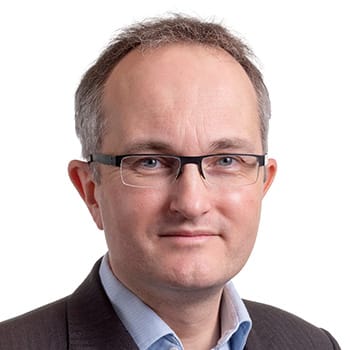
Sabrina Ayoub-Charette
Department of Nutritional Sciences, Temerty Faculty of Medicine, University of Toronto
Sabrina Ayoub-Charette is a Doctoral student in the Department of Nutritional Sciences at the University of Toronto and the Clinical Nutrition and Risk Factor Modification Centre at St. Michael’s Hospital, Toronto, Ontario, Canada. Her early work focused on systematic reviews and meta-analysis of the effect of food sources of fructose-containing sugars on various cardiometabolic risk factors. More recently, Sabrina’s interests have shifted towards the role of non-nutritive sweeteners in replacing added sugars in the diet, and their particular effects on the human gut microbiome. Currently, Sabrina the main data analyst and bioinformatician of the Strategies To OPpose SUGARS with Non-nutritive sweeteners Or Water (STOP SUGARS NOW) trial, which is a clinical trial investigating the effect of replacing sugar-sweetened beverages with non-nutritive sweetened beverages or water on the risk for diabetes and the gut microbiome in overweight or obese sugary beverage consumers.

Laura Chiavaroli MSc, PhD
Department of Nutritional Sciences, Temerty Faculty of Medicine, University of Toronto
Dr. Laura Chiavaroli is a Research Associate in the Department of Nutritional Sciences, Temerty Faculty of Medicine, at the University of Toronto. Laura’s primary research interests over the past 10 years have been in the field of nutrition and cardiometabolic health, specifically on the effects of plant-based dietary patterns and carbohydrate nutrition on the prevention and management of obesity, diabetes and cardiovascular disease. Laura has extensive experience in the design, conduct, analyses, and interpretation of large multidisciplinary randomized controlled trials, as well as in nutritional epidemiology, specifically in the conduct of large systematic reviews and meta-analyses. She also has robust experience in health service/translational research, including the development of mobile applications and patient- and physician-facing resources. Laura’s overall goal is to translate clinical guidelines which encourage consumption of plant-based dietary patterns into practice, to improve public and planetary health, while inspiring students and others along the way.

Nathaniel Erskine-Smith
Member of Parliament, Beaches-East York
MP Nathaniel Erskine-Smith is the Member of Parliament for Beaches-East York, a position he has held since 2015.
He currently sits on the Standing Committee on Industry, Science and Technology, has previously chaired the Liberal, and All-Party, Animal Welfare Caucuses on Parliament Hill, and been a member of the All-Party Climate Change Caucus.
His latest piece of legislation, Bill C-293 (An Act respecting pandemic prevention and preparedness) promotes a One-Health approach – a multisectoral and multidisciplinary collaborative approach that focuses on the human, animal, plant and ecosystem health and welfare interface – as central to preventing risk of future pandemics.
Prior to politics, he was a lawyer at a commercial litigation firm downtown Toronto. He supplemented his practice with volunteer legal work for a range of clients and causes, which included fighting public interest matters in court, and research for the Canadian Civil Liberties Association.
Nate obtained his B.A. (Politics) and J.D. (Law) from Queen’s University. He then obtained his B.C.L. (Master of Laws), with distinction, from the University of Oxford where he studied political philosophy and constitutional law, while also pitching for the University and City baseball teams.
He resides in Beaches – East York – where he was raised and went to school – with his wife Amy and two children, Mackinlay and Crawford.

Andrea J. Glenn RD, PhD
Harvard T.H. Chan School of Public Health
Dr. Andrea Glenn is a Postdoctoral Research Fellow at the Department of Nutrition at the Harvard T.H. Chan School of Public Health and at the Department of Nutritional Sciences at the University of Toronto. She has a PhD in Nutritional Sciences and is also a Registered Dietitian. Her research interests include the role of plant-based dietary patterns on cardiometabolic disease risk reduction. She is currently working on the role of the cholesterol-lowering portfolio diet in preventing cardiometabolic disease, incorporating traditional epidemiological analyses, clinical trial data and metabolomics. Other research areas include carbohydrate quality and plant protein.

Jillian Gregg BS, MS, PhD
Professor, Sustainability Double Degree Program, Department of Crop and Soil Science, Oregon State University, Steering Committee, Alliance of World Scientists, Oregon State University, and CEO, Terrestrial Ecosystems Research Associates, Corvallis OR
Dr. Jillian W. Gregg received a B.S. and M.S. Biology from University of Utah, a Ph.D. in Ecology and Evolutionary Biology, Cornell. She did postdoctoral research at the US EPA. Dr. Gregg founded Terrestrial Ecosystems Research Associates (TERA), a nonprofit research group determining the impacts of human-caused climate change. She has attained >$2M total in climate change, pollutant impacts, and water relations research. In 2015, Dr. Gregg joined Oregon State University to develop the course on Introduction to Climate Change. This course attracts >1000 OSU students per year, and she has written an online textbook to accompany the course.
She has recently joined the Alliance of World Scientists climate science advocacy group headed by Dr. Bill Ripple at Oregon State University and will be presenting the foundations and expansion of their work in the group’s most recent paper titled: “World Scientists’ Warning of a Climate Emergency: 2022.” Dr. Gregg and Dr. Ripple will both be available for the discussion session.

David Jenkins MD, D.Sc, PhD
University Professor, Departments of Nutritional Sciences and Medicine, Temerty Faculty of Medicine, University of Toronto
David Jenkins is a physician and nutritional scientist who has created the concept of the glycemic index and has devoted his life to investigating the science behind therapeutic diets for diabetes and cardiovascular disease treatment and prevention. He has made influential discoveries related to fibre and other food components and influenced public health and clinical guidelines for the treatment of disease.He believes in the value of plant based diets, and that a major effort is required to mount large studies to determine the extent of their health benefits. He also believes that diets have to be environmentally sustainable.

David L. Katz MD, MPH, FACPM, FACP, FACLM
Past President, American College of Lifestyle Medicine
Founder, True Health Initiative
Founder, Former Director, Yale University Prevention Research Center
CEO: Diet ID, Inc.
David L. Katz is a specialist in Internal Medicine, Preventive Medicine/Public Health, and Lifestyle Medicine, with particular expertise in nutrition. He earned his BA at Dartmouth College (1984); his MD at the Albert Einstein College of Medicine (1988); and his MPH from the Yale University School of Public Health (1993).
Katz is the founder and former director of Yale University’s Yale-Griffin Prevention Research Center (1998-2019); Past President of the American College of Lifestyle Medicine; Founder of the non-profit True Health Initiative; and Founder and CEO of Diet ID, Inc. He is a Fellow of the American College of Preventive Medicine; theAmerican College of Physicians; the American College of Lifestyle Medicine; and Morse College, Yale University.
The recipient of numerous awards for teaching, writing, and contributions to public health, Katz was a 2019 James Beard Foundation Award nominee in health journalism, is a 2023 recipient of a Lifetime Achievement Award from the Doctors’ World Gala, and has received three honorary doctorates.
He holds multiple US patents; has over 200 peer-reviewed publications; and has authored/co-authored 19 books to date including multiple editions of leading textbooks in nutrition, preventive medicine, and epidemiology.

Meaghan E. Kavanagh M.Sc
Department of Nutritional Sciences, Temerty Faculty of Medicine, University of Toronto
Meaghan is a CIHR Ph.D. candidate in the Department of Nutritional Sciences within the Temerty Faculty of Medicine at the University of Toronto, and the Toronto 3D Knowledge Synthesis and Clinical Trials Unit in the Clinical Nutrition and Risk Factor Modification Centre at St. Michael’s Hospital. Her Ph.D work on the Portfolio Diet and the PortfolioDiet.app is under the mentorship of Dr. John Sievenpiper. She completed her M.Sc. at the University of Guelph within the Department of Human Health and Nutritional Sciences, under the mentorship of Drs. Lindsay Robinson and Amanda Wright and her B.Sc. thesis at the University of Guelph under the mentorship of Dr. Alison Duncan. Prior to her Ph.D., Meaghan worked as a project manager from 2016-2020 at the University of Toronto under the supervision of Dr. David Jenkins. She was also Clinical Coordinator on the CIHR-funded STOP Sugars NOW Trial at St. Michael’s Hospital from 2019-2020, supervised by Dr. John Sievenpiper. Meaghan’s interests and expertise are in dietary patterns and the glycemic index and their impact on cardiovascular disease and mortality. Meaghan firmly believes that those studying human health must also consider planetary health in their research.

Vasanti S. Malik MSc, ScD
Department of Nutritional Sciences, Temerty Faculty of Medicine, University of Toronto, University of Toronto Adjunct Assistant Professor, Department of Nutrition, Harvard T.H. Chan School of Public Health
Vasanti Malik, is an Assistant Professor in the Department of Nutritional Sciences, Temerty Faculty of Medicine at the University of Toronto and an Adjunct Assistant Professor in the Department of Nutrition at the Harvard T.H. Chan School of Public Health. She holds a Canada Research Chair in Nutrition and Chronic Disease Prevention. Dr. Malik’s research uses a combination of epidemiological studies, clinical trials and evidence synthesis to evaluate dietary and lifestyle determinants of obesity and cardiometabolic diseases in different populations and across the lifecourse. Dr. Malik’s research has also expanded to studying the intersection of diet, health and environmental sustainability with the goal of informing dietary guidance and public policies to prevent chronic diseases and promote more sustainable food systems.

Celina Mankarios
Founder of Etherea and Youth Social Impact, Miss World International Canada, National Youth Ambassador of Canada
Celina is a social entrepreneur, Non-profit founder, National Youth Ambassador of Canada, model and pageant queen with multiple titles including Miss World International Canada for her humanitarian work. She has led hundreds of youth across the globe to fundraise nearly $10, 000 for charities and hosted international campaigns in partnership with organizations, Ivy League professors, government officials and renowned activists to create innovative solutions and new governmental policies that solve the United Nations’ SDGs including climate change, world hunger and gender equality. With government funding, she managed the implementation of the ‘Changemaker Course’ in high school curriculums which is centralized on equipping youth with the knowledge/resources necessary to pitch solutions to pressing world issues. Celina has also been working on launching a new app this February that guides youth to “create their own utopia on Earth” with their dual focus on personal development and global citizenship.
As a dedicated vegan, Celina is currently working on a national campaign to implement plant-based meals and education in elementary and high schools nationwide, in collaboration with teachers across Canada. Through empathy building/ social justice workshops for students and lesson trainings for teachers, she has led her team in helping fight against climate change, animal cruelty and the health crisis through plant-based living

Nick Molden
CEO, Emissions Analytics, UK
Nick founded Emissions Analytics in 2011 to understand real-world emissions and fuel economy and emissions from vehicles. Its EQUA Index database of thousands of independently conducted tests is an international performance benchmark. The wider mission is to understand the holistic environmental impact of vehicles on air, soil and water, from tyre wear rates to volatile organic compound emissions.
Nick is chairman of the European standardisation CEN Workshop 90 on collecting real driving emissions data, which has led to the publication of the AIR Index. He is also chairman of CEN Workshop 103 on standardising the collection of vehicle interior air quality data.
He is a specialist in data analytics, particularly in the automotive market, through his prior work at Oxford Indices Ltd, a data specialist, United Business plc and Haymarket Media Group. Nick is a graduate of the University of Oxford, and an Honorary Research Fellow at Imperial College London.

André Picard
The Globe and Mail, Canada
André Picard is the health columnist at The Globe and Mail and the author of six bestselling books. He is one of Canada’s most decorated journalists, having received the prestigious Michener Award for Meritorious Public Service Journalism, the Fleming Medal for Excellence in Science Communication, and the Hyman Solomon Prize for Public Policy writing. In 2021, he was named Canada’s top newspaper columnist. André is a graduate of the University of Ottawa and Carleton University and has received honorary doctorates from seven universities, including the University of Toronto and UBC.

William Rees PhD, FRSC
Professor Emeritus and former Director of the University of British Columbia’s School of Community and Regional Planning in Vancouver, Canada
William Rees is a population ecologist, ecological economist, Professor Emeritus and former Director of the University of British Columbia’s School of Community and Regional Planning in Vancouver, Canada. He researches the implications of global ecological trends for the longevity of civilization, with special foci on urban (un)sustainability and cultural/cognitive barriers to rational public policy. Prof Rees is best known as the originator and co-developer with his former student, Dr Mathis Wackernagel of ‘ecological footprint analysis’ (EFA), a quantitative tool that estimates human demands on ecosystems and the extent to which humanity is in ‘ecological overshoot.’ He has authored hundreds of peer reviewed and popular articles on these and related topics. Dr Rees is a founding member and former President of the Canadian Society for Ecological Economics; a founding Director of the One Earth Living Initiative (https://www.oneearthliving.org/); a Fellow of the Post-Carbon Institute and an Associate Fellow of the Great Transition Initiative. Internationally recognized, Prof Rees was elected to the Royal Society of Canada in 2006; received both the international Boulding Memorial Prize in Ecological Economics and a Blue Planet Prize (jointly with Dr Mathis Wackernagel) in 2012; the Herman Daly Award (in ecological economics) in 2015 and the Dean’s Medal of Distinction (UBC Faculty of Applied Science) in 2016. He was a full member of the Club of Rome from 2014-2019.

William J. Ripple BS, MS, PhD
University Distinguished Professor of Ecology
Department of Forest Ecosystems and Society
Oregon State University, Corvallis, Oregon
William Ripple is a University Distinguished Professor of Ecology at Oregon State University. He is also the director of the Alliance of World Scientists which has 26,000 members from 180 countries.

John L. Sievenpiper MD, PhD, FRCPC
Departments of Nutritional Sciences and Medicine, Temerty Faculty of Medicine, University of Toronto
Dr. Sievenpiper is a Clinician Scientist who holds appointments as an Associate Professor in the Departments of Nutritional Sciences and Medicine and the Lifestyle Medicine Lead in the MD Program at the University of Toronto and a Staff Physician in the Division of Endocrinology & Metabolism and Scientist in the La Ka Shing Knowledge Institute at St. Michael’s Hospital. Dr. Sievenpiper completed his MSc, PhD and Postdoctoral Fellowship training in the Department of Nutritional Sciences at the University of Toronto. He completed his MD at St. Matthew’s University followed by Residency training in Medical Biochemistry at McMaster University leading to his certification as a Fellow of the Royal College of Physicians of Canada (FRCPC). He has established an internationally recognized research program focused on using randomized controlled trials and systematic reviews and meta-analyses to address questions of clinical and public health importance in relation to diet and cardiometabolic disease prevention with a particular interest in the role of sugars, carbohydrate quality, and plant-based dietary patterns. He is directly involved in knowledge translation with appointments to the nutrition guidelines committees of Diabetes Canada, European Association for the study of Diabetes (EASD), Canadian Cardiovascular Society (CCS), and Obesity Canada. He is the recipient of numerous awards including a CNS Young Investigator Award, PSI Foundation Graham Farquharson Knowledge Translation Fellowship, Diabetes Canada Clinician Scientist Award, Banting & Best Diabetes Centre Sun Life Financial New Investigator Award, and CIHR-INMD/CNS-New Investigator Partnership Prize. He has authored > 200 scientific papers and 17 book chapters.

Tony Weis PhD
Professor
Department of Geography and Environment
The University of Western Ontario, Canada
Tony Weis is a Professor of Geography and Environment at Western University. His research is broadly located in the field of political ecology, with a focus on the power imbalances, biophysical instabilities, and interspecies relations in modern agriculture and food systems, and he has given particular attention to the problems of industrial livestock production. He is the author of The Ecological Hoofprint: The Global Burden of Industrial Livestock (2013) and The Global Food Economy: The Battle for the Future of Farming (2007), and is presently at work on a book tentatively entitled The Violent Narrowing of Animal Life.

Walter Willett MD, DrPH
Harvard T.H. Chan School of Public Health, US
Dr. Walter Willett is a physician and epidemiologist and Professor of Epidemiology and Nutrition at the Harvard T.H. Chan School of Public Health. He served as Chair of the Department of Nutrition at Harvard for 25 years. Much of his work has been on the development of methods, using both questionnaire and biochemical approaches, to study the effects of diet on the occurrence of major diseases. He has applied these methods starting in 1980 in the Nurses’ Health Studies I and II and the Health Professionals Follow-up Study. Together, these cohorts that include nearly 300,000 men and women with repeated dietary assessments are providing the most detailed information on the long-term health consequences of food choices. Dr. Willett has published over 2,000 research papers, primarily on lifestyle risk factors for heart disease and cancer, and has written the textbook, Nutritional Epidemiology, published by Oxford University Press. He also has four books for the general public. Dr. Willett is the most cited nutritional scientist internationally. He is a member of the National Academy of Medicine and the recipient of many national and international awards for his research.

Trevor Young MD, PhD, FRCPC, FCAHS
Dean, Temerty Faculty of Medicine, and Vice Provost, Relations with Health Care Institutions, University of Toronto
Prof. Trevor Young is Dean of the University of Toronto’s Temerty Faculty of Medicine and Vice Provost, Relations with Health Care Institutions. He graduated from the medical school at the University of Manitoba in 1983. He completed his postgraduate training in psychiatry in 1987, and then his PhD at the Institute of Medical Science, University of Toronto in 1995 and was a research fellow at Johns Hopkins School of Medicine. He has been Professor of Psychiatry and Behavioural Neurosciences at McMaster University; Professor and Head, Department of Psychiatry at the University of British Columbia; and Professor and Chair of the Department of Psychiatry at the University of Toronto. He was also Physician-in-Chief, Executive Vice President Programs at the Centre for Addiction and Mental Health in Toronto. His awards include the 2015 Colvin Prize for Outstanding Achievement in Mood Disorders Research from the Brain and Behaviour Research Foundation, the Douglas Utting Award for outstanding contributions in the field of mood disorders, and the Canadian College of Neuropsychopharmacology Heinz Lehmann Award. He is a Fellow of the Canadian Academy of Health Sciences.
